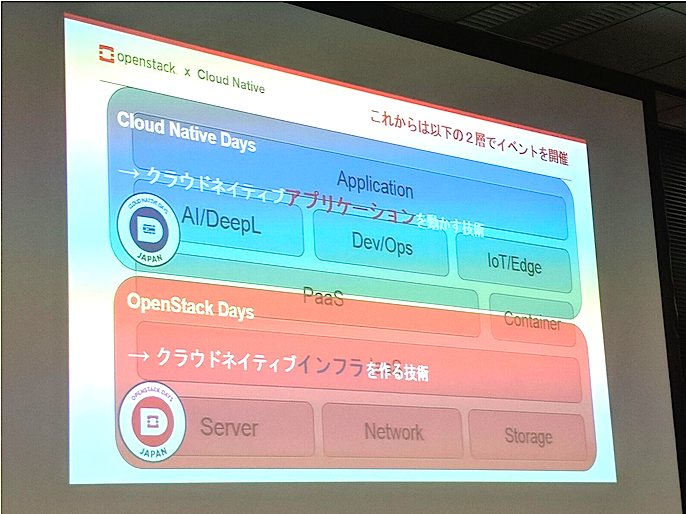Akihiro Hasegawa kicked off OpenStack Days Tokyo with a strong message about how to engage with open source: it’s about contribution, not just consumption.
He credits the strong community of contributors in Japan for organizing the most successful events to date, with more than 1,000 registrants despite the fact that it was their first-ever paid event.
Another success factor was co-locating a Cloud Native Days event and focusing on the larger picture of how open infrastructure supports cloud native applications. Open source is the ethos that brings these communities together says Hasegawa, a board member of the Japan OpenStack User Group and a chairman/founder of the Tokyo event.
That sentiment was echoed in a keynote from Abby Kearns, executive director of the Cloud Foundry Foundation, who talked about how open source is a choice that delivers control for her users. That means that users can get involved and contribute directly to the project roadmap or the software itself, hitting on the theme of gaining more value from contribution than simple consumption. Kearns also highlighted several joint Cloud Foundry and OpenStack case studies, including Rakuten and Yahoo! Japan.
Deepak Kumar Gupta, general manager of NEC’s open-source office in India, continued the themes of contribution by touting his company’s technical leadership, commits and reviews to OpenStack, as well as many other open source projects. A major focus has been enabling smart cities using the FIWARE IoT platform, an open-source project to which NEC is a major backer. Gupta’s team has put significant work into integrating FIWARE with OpenStack and Kubernetes, benefiting their customers as well as upstream communities.
Feel good & proud factor when we see that much contribution we are doing in @OpenStack . #openstackdaytokyo pic.twitter.com/rJlGif0Axi
— Ghanshyam Mann (@ghanshyammann) August 2, 2018
Shintaro Mizuno moderated the sixth OpenStack ops meetup in Japan, where users who are running clouds got together for unconference-style discussions ranging from GPUs to serverless to the changing storage landscape. There were 29 attendees from 17 companies who attended the 12 ops sessions over two days. Topics included storage, serverless tech, OpenStack+GPU, containers, edge computing and how to integrate ops into the larger community.
The ops meetup sessions are another great example of contribution in the form of knowledge sharing among users, as well as providing feedback to the upstream community to help guide the future roadmap. The group took extensive notes in Etherpads which will be summarized and shared back to the ops mailing list.

At the evening reception, community members celebrated the 8th birthday of OpenStack and many early community members reflected on how OpenStack has grown and the impact it’s had on the industry and open source.
When asked about their wish for the future, many said they hope the open source values and collaboration systems are studied and adopted by more projects and teams.
Bringing together the open infrastructure and cloud native communities was a big success in Japan. In addition to OpenStack, Cloud Foundry and Fiware, many other open source projects were featured at the event, including Ansible, Ceph, KubeFlow, Prometheus, Spinnaker, TensorFlow and Zuul.
It’s clear that open source is a positive sum game and that users care about the value of integrating these open technologies together.
Picture: https://www.dropbox.com/s/n5hyyxr4l3r1qj4/MVIMG_20180802_183540.jpg?dl=0
NEC demonstrates Fiware smart city application running on OpenStack and Kubernetes
- What’s the value of contributing to open source? - October 17, 2018
- How one of Sweden’s largest online lenders optimizes for speed - October 11, 2018
- How AI and IoT drive open infrastructure in Taiwan - August 27, 2018

)








